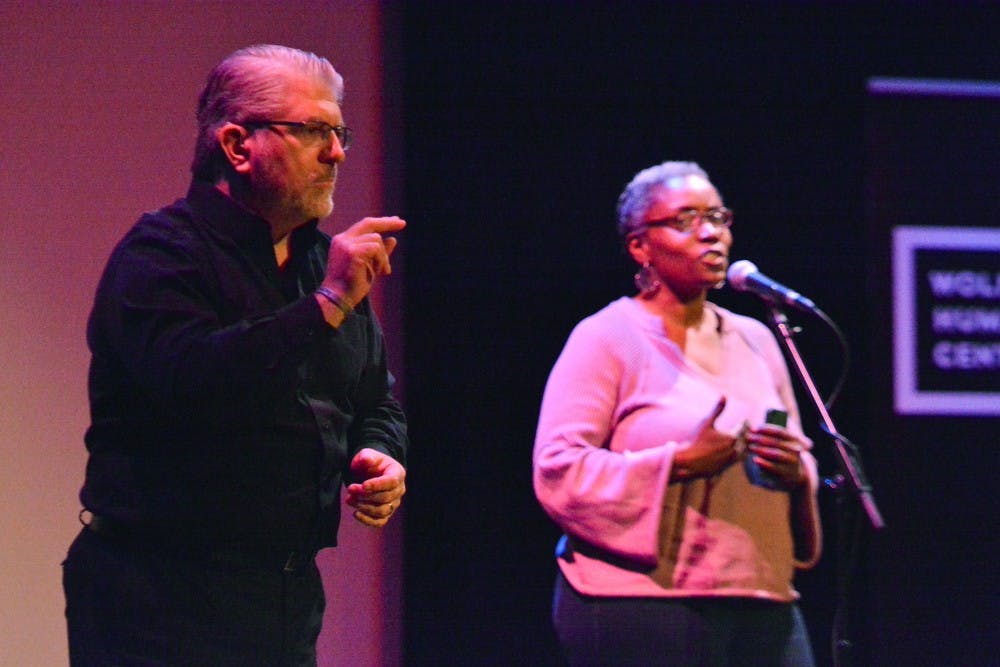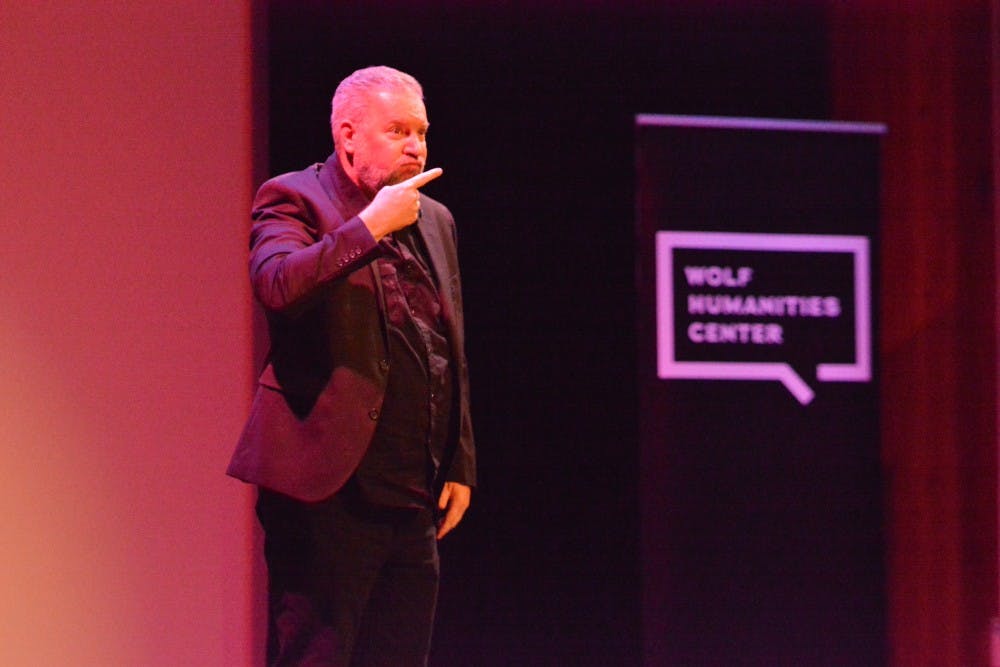
At the first-ever Penn-affiliated story slam of its kind, people took the stage to share their stories — through speech and through sign language.
At International House Philadelphia on Tuesday, speakers recalled significant events in their lives, some solemn in nature, some humorous. American Sign Language advocate and performer Wink Smith, Jr. emceed the event, while interpreters made the stories accessible for both hearing and non-hearing attendees.
The topics ranged from losing 130 pounds, getting misdiagnosed multiple times with a mental illness, writing a play that inspired another student’s method of suicide, and growing stronger through an experience with a malignant tumor (affectionately nicknamed “Tammy”).
“The aim of this event is to provide a space where deaf and hearing communities can come together and exchange stories," volunteer and College senior Dara Hofmann said.
Penn's ASL program coordinator Jami Fisher felt inspired to help organize the event after attending a local story slam. “We really need to do this for deaf people, particularly because this is a really good fit for our community, since storytelling is really integral to deaf community values and deaf culture," she said.
Attendees also said the event was illuminating by expressing the experiences of non-hearing people.
“There were parts [that explained] the barriers between speaking American sign language and speaking, and gave me a lot of insight into how challenging that experience can be,” said Philadelphia resident Jenna Spitz, who came to the event to support her friend, one of the storytellers.

Wharton freshman Kelly Morrison attended the event to fulfill a class requirement and support her teacher, who performed. “I love being in sign language … and I really appreciate the culture. This is a great way to experience it," she said. "This was a collaboration between hearing people and deaf people, and that doesn’t happen all the time.”
College sophomore Sarah Nam said, “It was really cool because in class it’s very structured, but here we’re seeing real deaf performers from different deaf schools, and it was cool to see what we’ve been learning in class in live action.”
Some also suggested that Penn could improve awareness for deaf people by publicizing events like these. Nam said, “I feel like if you’re not in sign language, you wouldn’t even know that an event like this was happening."
ASL has a long history at Penn, with Penn being the first Ivy League school to offer a for-credit ASL class in 2001. In 2012, Penn also became the first Ivy to offer an ASL minor.
Institutions including Kelly Writers House, the ASL Program in the Department of Linguistics, the Deaf-Hearing Communication Centre, and the Wolf Humanities Center presented the event. The "Rebirths, Returns, and Comebacks" theme aligned with the Wolf Humanities Center's year-long theme of "Afterlives."
Fisher had worked with the Wolf Humanities Center previously and pitched the idea of the event to them two summers ago. She said she was pleased with the event's turnout.
“We had over 400 people at the event last night," Fisher said. "There were people from really diverse audiences, not just the ASL community or deaf community members.”
Fisher added that she hopes the event can occur annually.
“I’d like to see these events more often," Spitz agreed. "It’s empowering to communities to tell their stories; I really think there’s something therapeutic and transformative about telling stories.”
The Daily Pennsylvanian is an independent, student-run newspaper. Please consider making a donation to support the coverage that shapes the University. Your generosity ensures a future of strong journalism at Penn.
Donate






